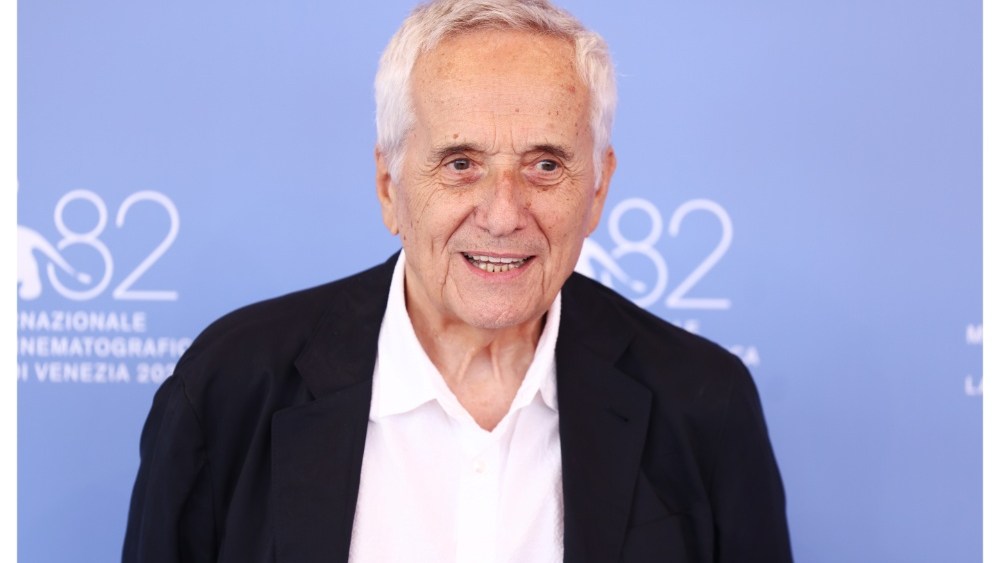In Marco Bellocchio‘s HBO show “Portobello,” which just launched from the Venice Film Festival, the revered Italian auteur reconstructs one of Italy’s most clamorous travesties of justice.
The six-episode limited series delves into the true story of popular Italian TV host Enzo Tortora who, among other programs, conducted a primetime game show titled “Portobello” that aired on Italian state broadcaster RAI for seven seasons starting in 1977.
In 1985, Tortora was accused by several alleged ex-mobsters turned informants and state witnesses of being part of a Neapolitan crime syndicate dedicated to drug trafficking. After being sentenced to 10 years in prison and spending some time behind bars — plus enduring a lengthy trial — Tortora’s conviction was eventually fully overturned by Italy’s Supreme Court in 1987 amid widespread belief that the TV host had been the victim of corrupt judges and prosecutors. He died in 1988, after briefly reviving “Portobello” on TV.
“Portobello” will be the first HBO Original Italian production to launch on the HBO Max streaming platform, debuting in 2026.
The prolific — and still very active — Bellocchio, who is 85, is considered the greatest living Italian director of the country’s old guard that came of age during the 1960s. His recent works comprise 2019 drama “The Traitor,” about the first high-ranking member of Cosa Nostra to break the Sicilian Mafia’s oath of silence, that was released in the U.S. by Sony Pictures Classics. In 2023, he shot “Kidnapped,” which reconstructs the true tale of Edgardo Mortara, a young Jewish boy who was kidnapped and forcibly raised as a Christian in 19th-century Italy.
Below, Bellocchio speaks to Variety about why he decided to depict the story of a man who, as he puts it, “was so distant from my world.”
What drew you to this story?
It certainly wasn’t the mission of vindicating the injustice that Enzo Tortora suffered. I think it was more the fact that, as a character, he was so distant from my world. The emotional inspiration came when I read the letters he wrote to his partner Francesca Scopelliti. Even though I didn’t like some of the flowery adjectives Tortora used, I latched onto the fact that he was completely defenseless. He was trying to adapt to living in a prison cell with five other inmates, in bunk beds amid oppressive, absurd heat. And rather than indignation or rage or fury, what comes through in the letters is his sheer amazement at being in this predicament.
How would you describe Tortora?
He had a rather Anglo-Saxon manner in the way he handled himself and a certain elegance. But on the other hand, he was quite cynical, especially in the types of people he had on the show. They ranged from hypnotists to performing nuns and fake inventors — a whole cast of characters who were both comical and absurd. I remember there was a guy who wanted a job at a cemetery and complained that to get it he a needed a politician to pull some strings. He wasn’t making fun of them, but he would pretend to be deeply involved in their problems, even absurd ones.
“Portobello” reunites you with Fabrizio Gifuni, who played Aldo Moro in your TV series “Exterior Night.” Was he an easy casting choice?
Gifuni was a good fit because he has a background in law studies and a meticulous attention to detail. I also knew that his father, a high-ranking politician, had been briefly implicated in a trial based on spurious evidence from which he was cleared of all charges. Not that his father was ever arrested, but I knew that it was something Fabrizio felt strongly about. Of course, there was the precedent of him playing Moro. And I knew they had to be two very different characters. Moro was powerless and eventually was killed. Tortora eventually fights back and is acquitted, but he’s been mortally wounded.
“Portobello” also reunites you with the great Barbora Bobulova, who plays Tortora’s sister. She debuted in Italy on the big screen in your 1997 film “The Prince of Homburg.” How was it to be back working together?
Barbora is more than just a good actress. Even though she is not Italian [Bobulova is Slovenian but works in Italy], she knows how to imbue roles that may be secondary and quite particular with great believability. She may not have the big scenes, but she really knows how to fit in. So it was great to intersect again.
Let’s talk a little about the character of Tortora’s sister, who is integral to her brother’s work since she is his manager.
She supports him, in some way protects him. There are several key scenes where, suddenly, almost like a child, he asks her: “How did I do?” This is something I picked up on, how a man who was such a popular TV personality at the end of every show would ask his sister for reassurance. He desperately needed this. She also tried to shield him from possible scandal when it comes to his much younger partner, Francesca. It’s not that his sister is against this extramarital relationship. But she warns him and says: “Look, you have a Catholic audience, so be careful.”
In “Portobello,” you seem to be going for a more naturalistic tone than “Exterior Night,” both in the narrative and the set design. Is that correct?
Yes. In “Portobello,” the TV show is the central image. So we reconstructed the studio exactly as it was at Cinecittà. I felt the need for accuracy. Then there were some time constraints, so we had to cut quite a bit and do a very concise montage. But it’s true, I was interested in conveying a realistic depiction of both the setting and the story. So, like you say, I resorted to a certain type of naturalism.

